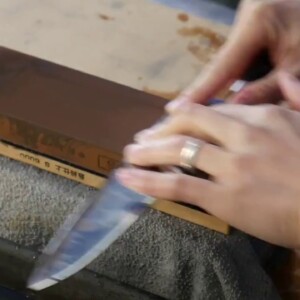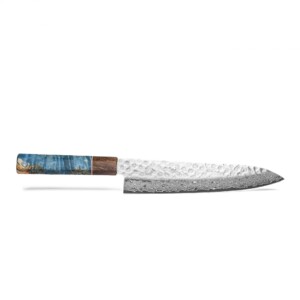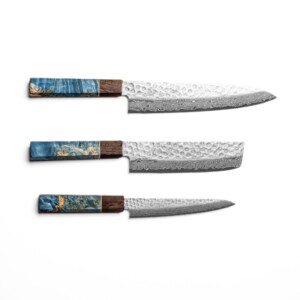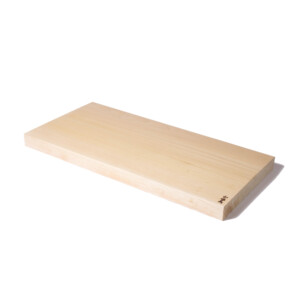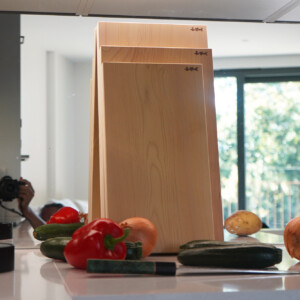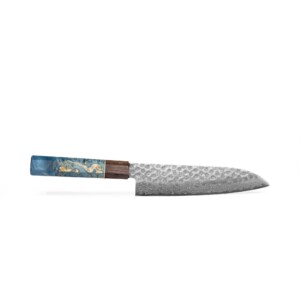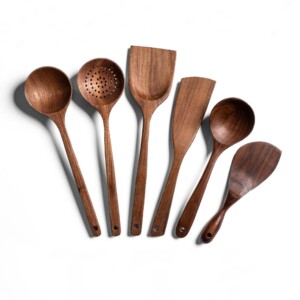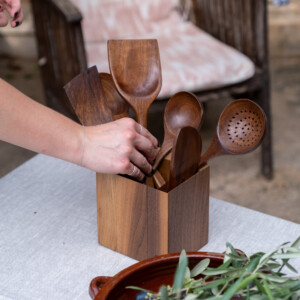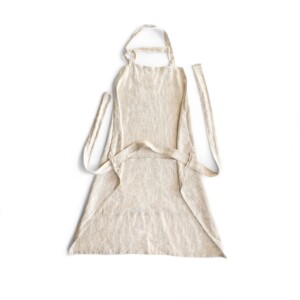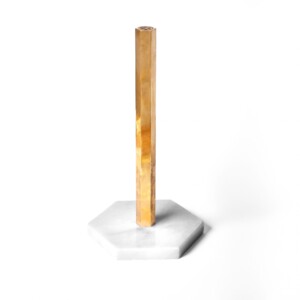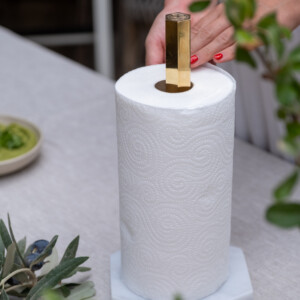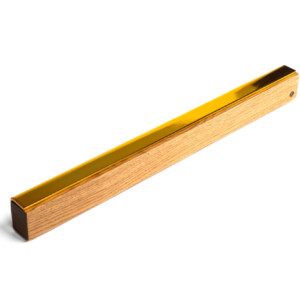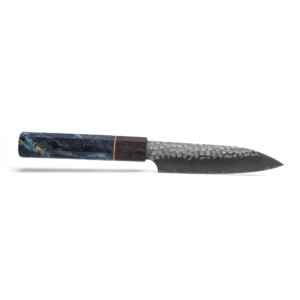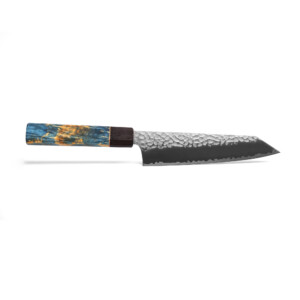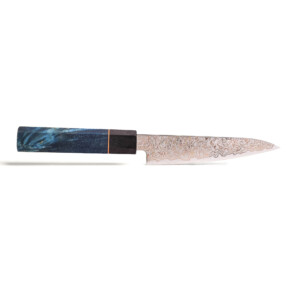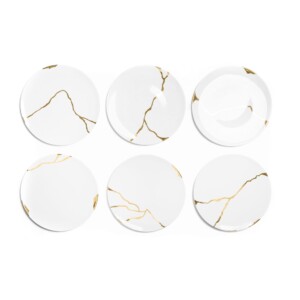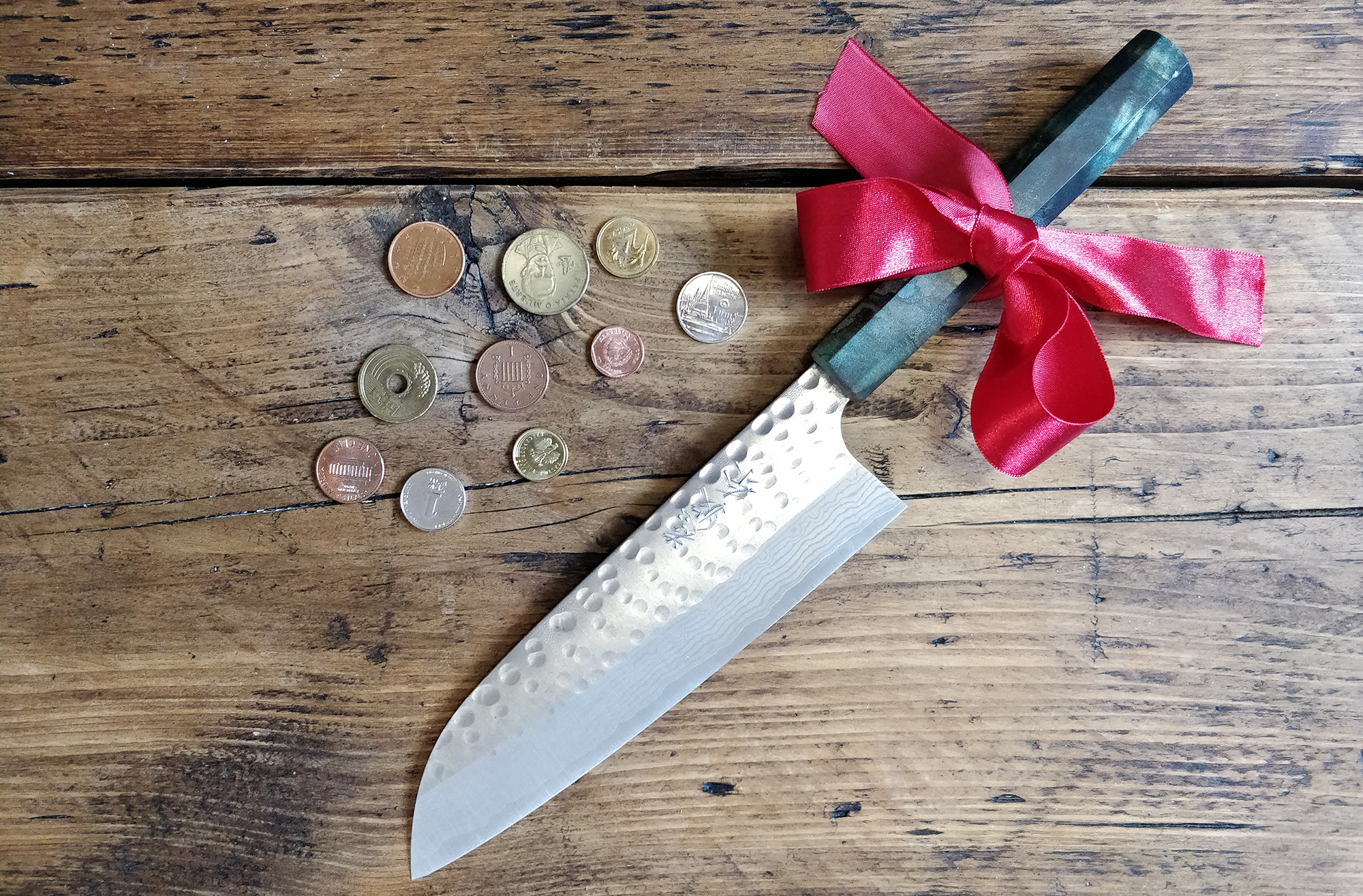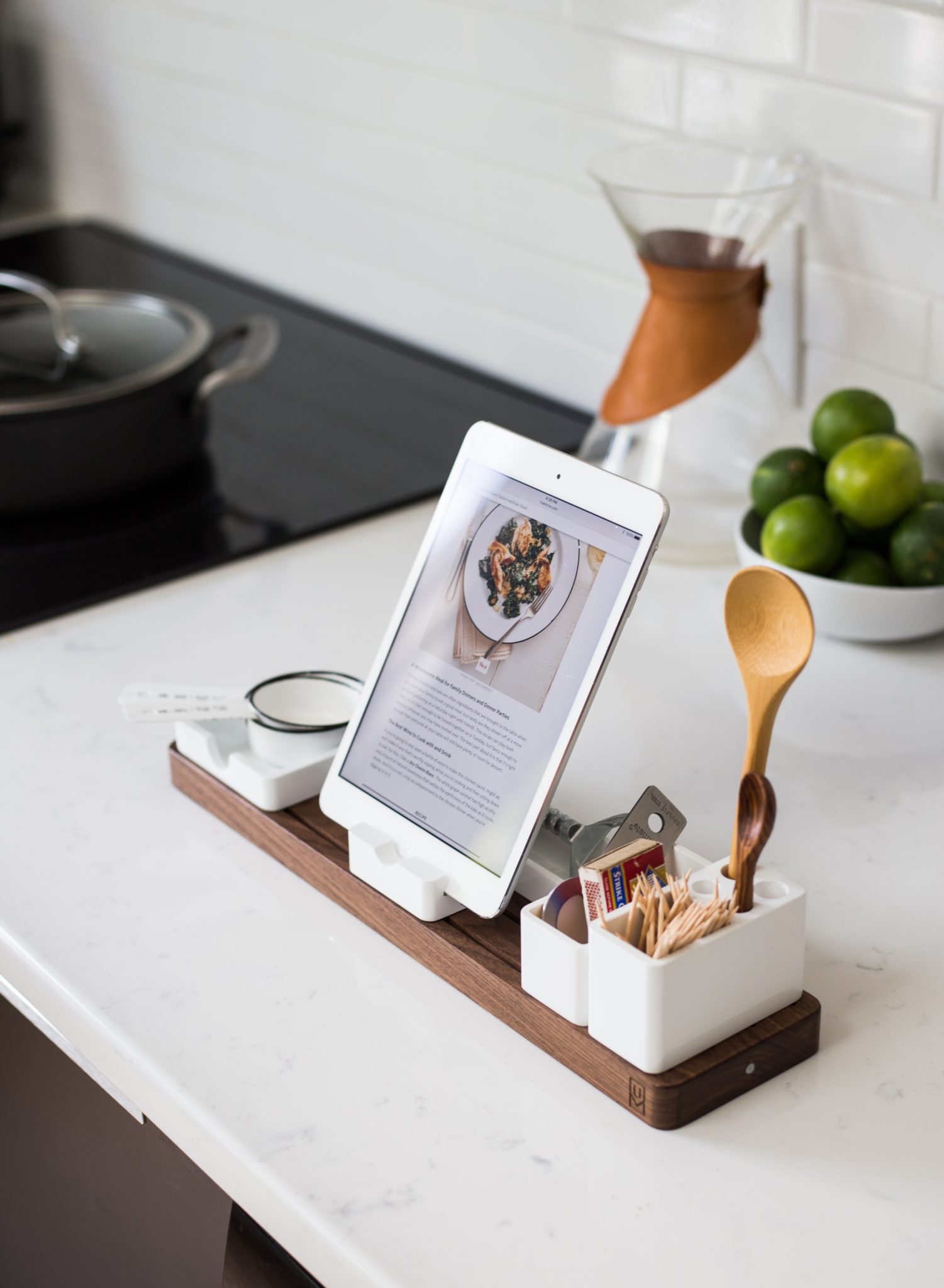1. They can handle the heat
2. They are non-reactive so you can use them with acidic foods
Acidic foods can really do a number on your metal utensils and cookware (like e.g. high carbon knives) and leave your foods with an unsettling metallic aftertaste. So when it comes to cooking tomatoes, pickling vegetables and using vinegar, you’ll want to go for wooden spoons. They are non-reactive, meaning they won’t react when they come into contact with anything acidic. They will also not leach chemicals into your food.
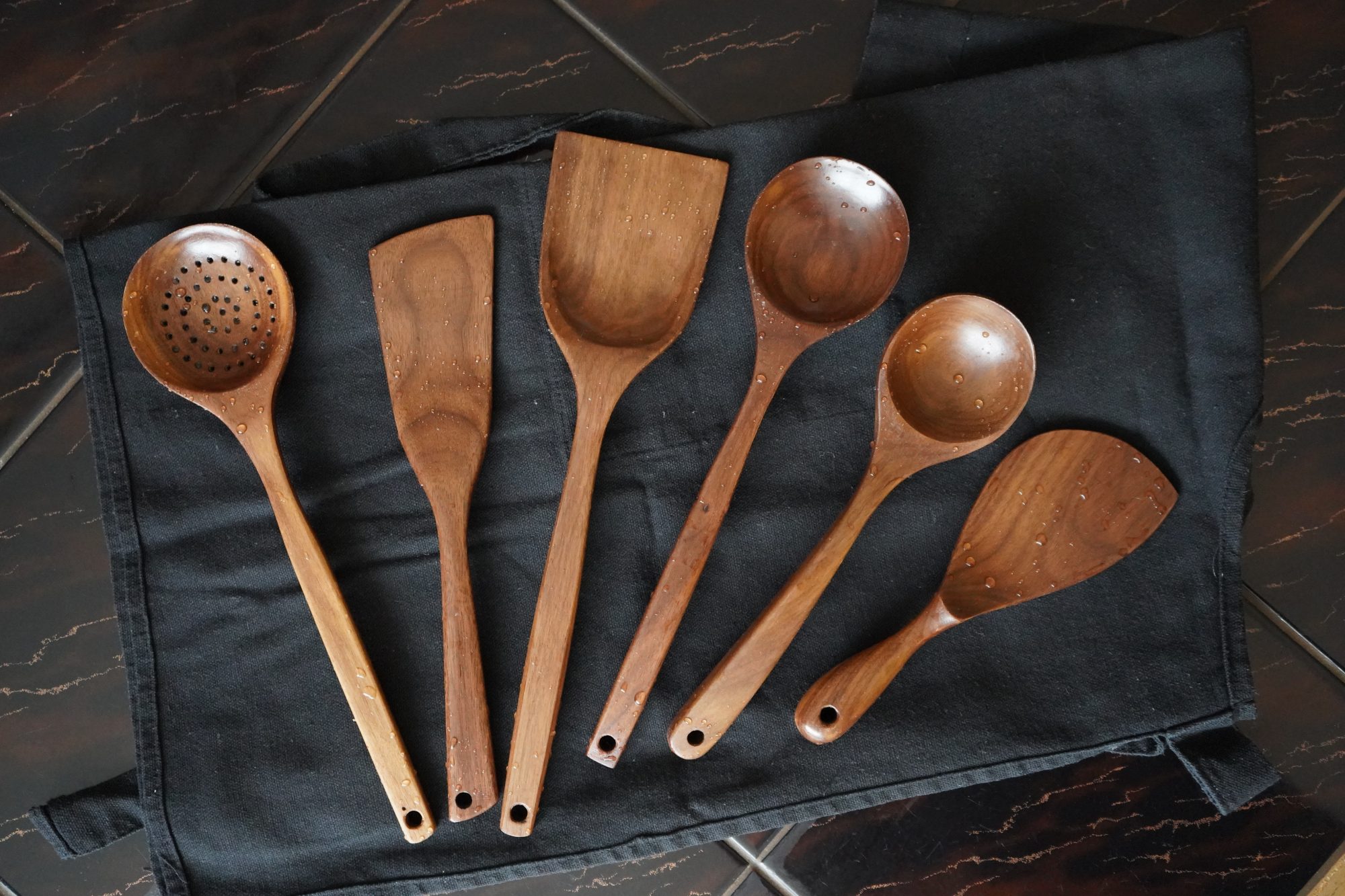
3. Germs and bacteria don’t grow quickly
One of the biggest myths going around about wooden spoons is that they’re a breeding ground for bacteria. This actually isn’t true. Studies show that, despite wood being porous and retaining water, bacteria doesn’t grow on wooden surfaces and will eventually die over time.
Plastic, however, provides bacteria an environment where it could survive and even grow. It’s not been fully proven why wood can prevent bacteria growth, but some scientists believe that certain kinds of wood can have antimicrobial properties.
Don’t take this for granted, though. When taking care of your wooden spoons, be sure to clean them with warm soapy water, and let them air dry, as drying them with a dish rag can introduce new bacteria to the spoon’s surface.
Wooden spoons are made with a natural material that doesn’t have a negative impact on the environment like plastic and metal utensils. They don’t require harmful chemicals to make and when they eventually need to be thrown away, they’ll decompose naturally.
Being heat-resistant, non-reactive and a more sanitary utensil, wooden spoons are the perfect tool for canning fruits and vegetables. And because the act of canning includes multiple steps of sterilizing your materials, when properly taken care of, your wooden spoon will help prevent the introduction of new bacteria into your canned goods.
4. They’re durable
Wooden spoons are made to last. Since they’re carved with one solid piece of wood and not a metal spoon with a plastic handle, you can trust that your wooden spoon won’t break when stirring. They’re also very easy to clean and care for. If your wooden spoons are a little worse for wear, simply sand them down a bit and treat them with a mineral oil. The sturdy and thick handle of wooden spoons helps home cooks maintain a solid grip. Their design fits comfortably in your hands, making it easier to maneuver when working in the kitchen.
Another bonus is that they’re neutral for your health. Ever heard of microplastics? Plastic spatulas or those made with non-stick materials can break down over time into tiny plastic particles, which can end up in your food. It’s not very healthy, to say the least. However, it takes a lot of use and force for wooden spoons to begin to chip, split or fray, and if they do, at least they’re not made with any toxic materials.
5. They won’t scratch your cookware
What did your mom always tell you? Do not use metal spoons on her pan, maybe? When working with metal spoons, stirring can lead to scrapes and scratches inside your pots and pans. Wooden spoons are softer with edges that aren’t sharp enough to scratch your cookware. This is especially helpful with non-stick cookware, that can chip and flake unhealthy materials into your foods. It’ll also ensure that your cast iron skillets and stainless-steel cookware won’t scratch, leading to an increased chance of rusting.
There you go, those are our top 5 reasons why you should invest in a good wooden utensils set. Happy hunting!

